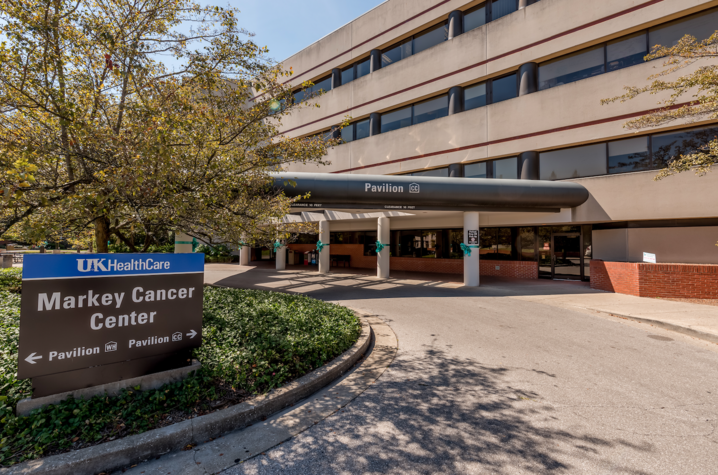UK Study Shows Combination Therapy May Potentially Improve Ovarian Cancer Patient Outcomes

LEXINGTON, Ky. (Sept. 28, 2021) — A new study from University of Kentucky Markey Cancer researchers demonstrates a combination of two drugs may be useful to treat ovarian cancers that are resistant to paclitaxel.
Recently published in PLOS ONE, the study demonstrates the combination of paclitaxel and lapatinib is synergistic, or when used together, the combined effect is better than expected; which may be a promising treatment strategy for patients with recurrent ovarian cancer.
Ovarian cancer is the most deadly gynecologic malignancy, with 1 in 70 women affected during their lifetime and with a five-year survival rate of less than 50%. Individuals with recurrent disease commonly receive paclitaxel, although only 20-30% benefit. The lack of response to paclitaxel is multifactorial, but one big reason is overexpression of ABCB1, a protein that essentially pumps drugs like paclitaxel out of cancer cells. This results in paclitaxel being eliminated from the body and unable to kill the cancer cells.
The team of researchers, led by Jill Kolesar, Pharm.D., professor in the UK College of Pharmacy and administrative director of Markey’s Precision Medicine Clinic, demonstrated that inhibitors of ABCB1 in combination with paclitaxel were able to kill cancer cells that had previously been resistant to paclitaxel. The medications tested in this study, lapatinib and poziotinib, have both been previously shown to inhibit ABCB1 activity, though this study was the first to demonstrate activity in ovarian cancer.
“This combination may benefit patients with recurrent ovarian cancer who have received paclitaxel as their first line of treatment,” Kolesar said. “More than 14,000 women will be diagnosed with ovarian cancer this year and the majority will have a recurrence, so developing effective treatment strategies is critical.”
Kolesar’s research led to the development of an ongoing clinical trial at the Markey Cancer Center for patients with who have recurred after platinum based chemotherapy.
"We are excited to evaluate another innovative treatment option for our patients with ovarian cancer, particularly since the combination of lapatinib and paclitaxel was discovered by Dr. Kolesar and team in one of our collaborative Markey Cancer Center labs," said Frederick Ueland, M.D., chief of gynecologic oncology and director of clinical operations at the UK Markey Cancer Center.
Research reported in this publication was supported by the National Cancer Institute of the National Institutes of Health under Award Number P30CA177558. The content is solely the responsibility of the authors and does not necessarily represent the official views of the National Institutes of Health.
As the state’s flagship, land-grant institution, the University of Kentucky exists to advance the Commonwealth. We do that by preparing the next generation of leaders — placing students at the heart of everything we do — and transforming the lives of Kentuckians through education, research and creative work, service and health care. We pride ourselves on being a catalyst for breakthroughs and a force for healing, a place where ingenuity unfolds. It's all made possible by our people — visionaries, disruptors and pioneers — who make up 200 academic programs, a $476.5 million research and development enterprise and a world-class medical center, all on one campus.




